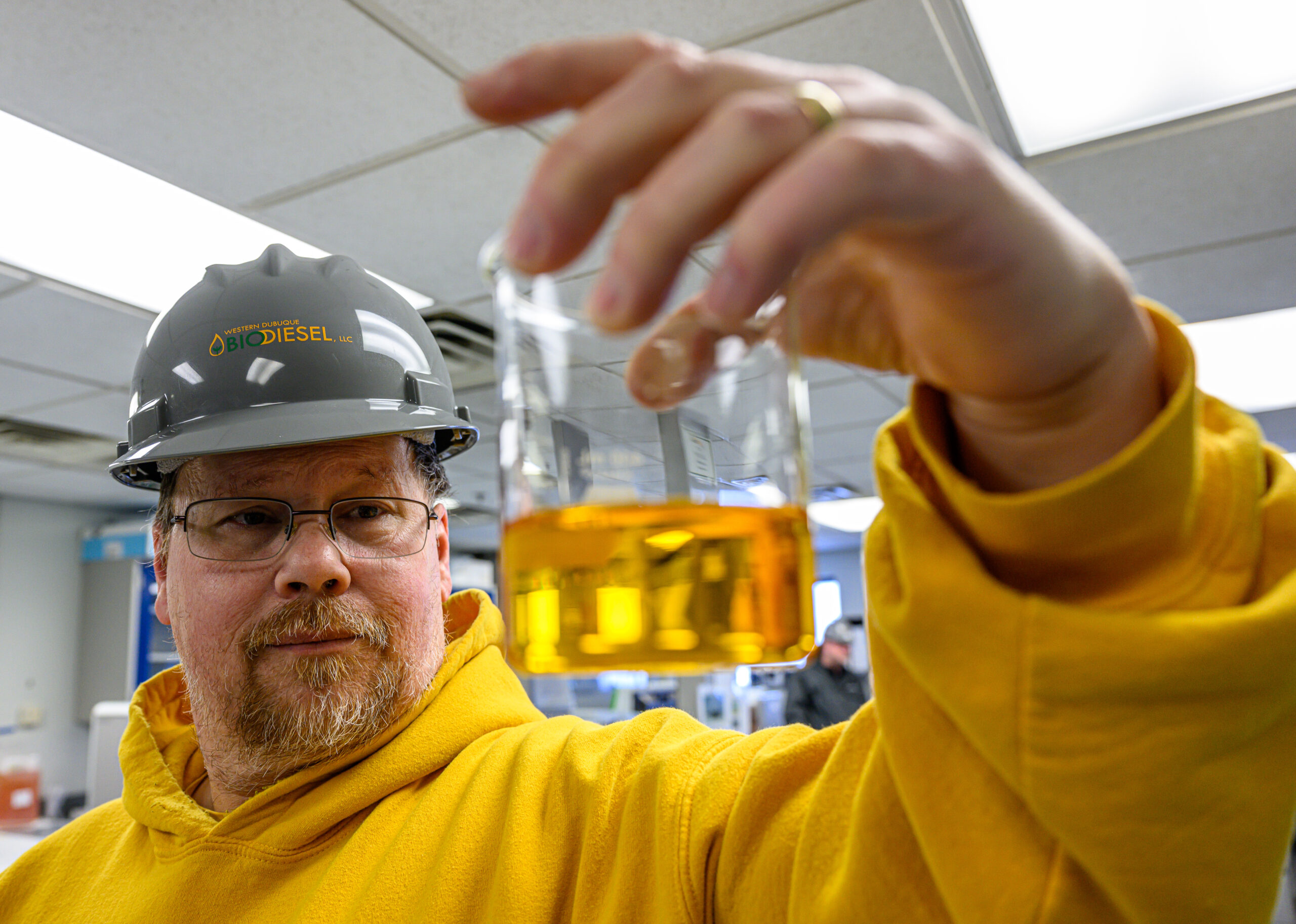Sunday Drives on Soy
A new asphalt product started with a question: What could make a more affordable and durable asphalt product? Research at Iowa State University by Eric Cochran and Christopher Williams uncovered how high oleic soybeans can help pave America’s roads. Their team’s research has opened another avenue for U.S. soy.
Traditional materials in asphalt products are declining in quality.1 Because asphalt made with crude oil is not holding up against extreme heat or cold, crude oil is becoming less attractive as an ingredient.1 And alternative solutions are needed.
“As refineries have optimized the generation of gasoline or diesel fuel or jet fuel, they strip out more and more material,” explains Rick Heggs, director of business development at OmniTech, a consulting firm that works on behalf of the United Soybean Board to identify commercialization opportunities for soy products. “This leaves the asphalt more brittle, hard, intractable and difficult to use.”
Cochran recognized a potential opportunity to use soybean oil to replace the crude oil in asphalt. He experimented with the formulation and found a process that worked.
“It’s just a two-step, four-hour synthesis that many smaller commercial manufacturers would be able to implement,” says Cochran.
This creation is called polymerized acrylated epoxidized high oleic soybean oil, or PAEHOSO. Benefits of PAEHOSO include:
- Less expensive than conventional asphalt.1
- More convenient options for local mixing instead of at a manufacturing plant.
- Safer for workers and handlers.1
- Improved durability and performance.1
PAEHOSO performs well under stress, taking both extreme heat and cold in stride.
“It is very effective at improving the low-temperature performance of really stiff asphalt, while retaining good rutting performance at the high end of the temperature spectrum,” says Cochran.
The soy-based asphalt has been tested in various settings. Test tracks and real-life scenarios include the National Center for Asphalt Technology in Opelika, Alabama; Des Moines, Iowa; and St. Joseph, Missouri. Overall, PAEHOSO held up well against the elements and traffic.1
This discovery shows great promise for both the construction and agriculture industries. While additional testing takes place, commercialization plans are in the works. But with the present success, there’s already buzz around the use of PAEHOSO-based asphalt on our nation’s roads.
To learn more about soybean oil in asphalt, check out this video.
[1] “Spurring Automotive Innovation with Soy,” C&EN BrandLab, United Soybean Board



